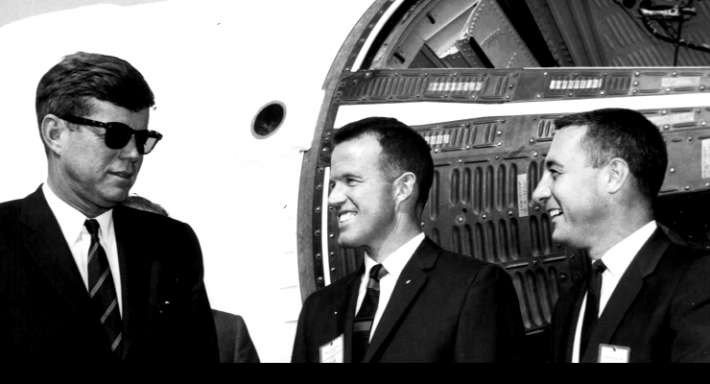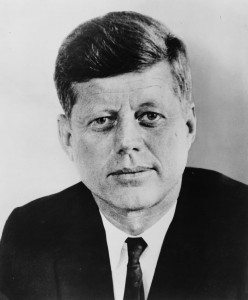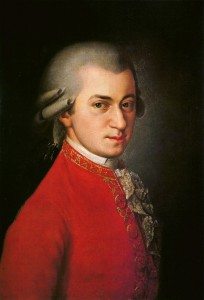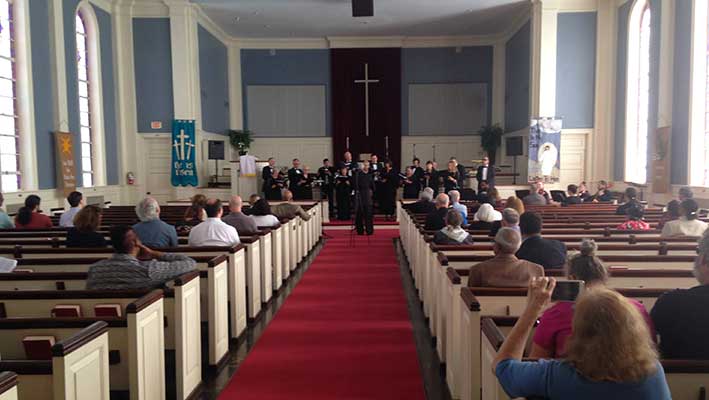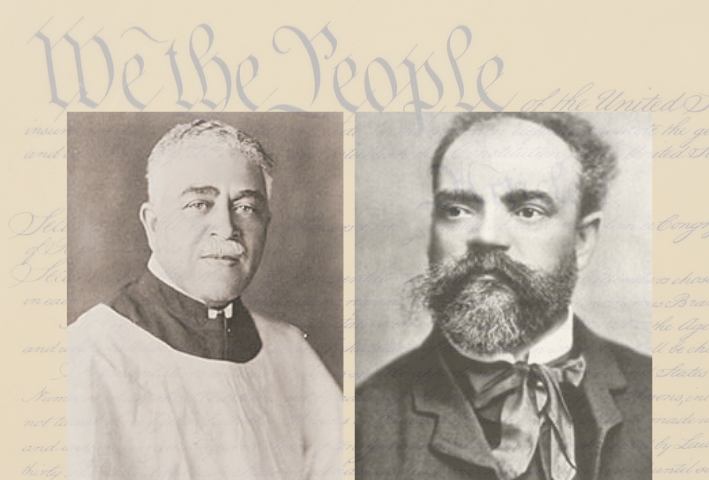On Sunday May 5th, the Schiller Institute NYC Chorus performed the Mozart Solemn Vespers, African-American Spirituals, and Verdi at a concert dedicated to the memory of Lyndon LaRouche in Little Italy of the Bronx. The chorus was joined by five professional soloists and orchestra, and everything, except the Bach organ prelude was performed at the Verdi tuning of c=256 Hz.
250-300 people turned out in the pouring rain to hear this wonderful program, which opened with the church organist playing a Bach organ prelude, and ended with Italian Opera arias sung by the soloists. Although there were several young children in the crowd, there was not a sound, except applause, which erupted after the first amen in the Vespers. One person commented that the Vespers was performed in such a transparent way that the genius of Mozart leapt out at him—the orchestra playing counterpoint to the chorus, as another voice, and not a unison.

Having everyone’s best loved Italian Opera arias sung by African-American, Chinese, and Greek soloists definitely demonstrated the universal quality of great music, and thrilled the Italian-Americans in the audience, and several were heard to be singing along by the end.
Also in attendance was the Ambassador from Sri Lanka to the UN, who was recognized by the priest and by Dennis Speed in his welcoming remarks, who expressed a dedication to the memory of those who had perished in the Easter massacres in Sri Lanka, killing over 300 people, including children in Sunday School. In dedicating the concert to Lyndon LaRouche, Dennis quoted from LaRouche’s review of the Mozart opera La Clemenza di Tito, and spoke of Lyndon’s critical insights and support for the choral process in Manhattan.
“All Classical art speaks directly to you, as an individual personality; it addresses the question each of us must ask ourselves at some point in our lives, or perhaps even repeatedly,
‘Who am I, and what are we? Since we are all born, and shall die, what is the meaning of that individual existence we occupy between birth and death? What is the continuation of that life, even after we are dead?’ Thus, great Classical art touches the same issues as Christianity and the themes of Judaism treated by the great Moses Mendelssohn.
“So, Mozart speaks to you personally, through La Clemenza di Tito, from the operatic stage. “Mozart does not preach; he evokes the experience of the discovery of the principle of agapë within the cognitive experience of the individual member of the audience, by means of the unfolding, ironical development within the drama as a whole. In the history of Christianity, for example, it has been the similar re-experiencing of the Passion of Christ from Gethsemane through and beyond the Crucifixion, which has been the artistic quality of reliving that impassioned experience upon which the strength of Christianity has depended. There is perhaps no more conclusive demonstration of that, than is supplied by J.S. Bach’s
St. Matthew Passion.
“…At the time of his death, and earlier, Mozart was essentially a leading Christian of his time, as his Ave Verum Corpus expresses this principle of Classical artistic composition with wonderful succinctness.”
Lyndon LaRouche
The chorus, now in its 5th year, has 80 members from Brooklyn, Queens, Manhattan and northern NJ, and the singers range in age from 27 to 89, and include college students, young professionals and retired people, a Chinese concert pianist, and a Bishop from a Church in Harlem, who also speaks German. They have all developed over the years, to the point that new members often flee, intimidated by the quality of the Manhattan rehearsal, and we have to call them back and assure them that many of the people they think sound so good, also couldn’t read music when they joined. (And many still can’t.)
The audience was largely from the neighborhood of the church, which is a very well-known Italian area, and has Italian shops, restaurants and bakeries which have been in the same families for over a century, in several cases. Italian-Americans from all over Westchester County, NJ and Connecticut come here to get their favorite Italian foods. These shop owners have been regular patrons of the chorus, buying ads in our programs for the last 3 years, and always asking us, “When are you going to hold a concert in the Bronx???” They were thrilled that we finally were at their church, Our Lady of Mount Carmel.
The associate priest, who is from Ghana, loved every minute of the concert and asked us to come back. When we said, “Yes, maybe next year.” He said, “I wish you could be here every day!”
Video coming soon!
To find out more about the NYC Schiller Institute Chorus, visit sinycchorus.com.
At the Dawn of a Musical Revolution:
Mozart’s Solemn Vespers
The following was written by Schiller Institute music director, John Sigerson, who conducted the May 5 performance in New York City.
By the time he composed the Vesperae solennes de confessore in 1780, the 24-year-old Wolfgang Amadeus Mozart was already a vastly accomplished composer who had produced 14 masses and hundreds of other works. Yet in this work, a setting of one of the most ancient offices of the Catholic Church, we experience vigorous new buds of a musical and scientific revolution—a revolution that today is making it possible to raise all humanity “out of the dust, and lift the needy out of the dunghill” (Psalm 113, “Laudate pueri”).
For today, we can celebrate the fact that the nation of Italy, cradle of the high Florentine Renaissance and of the Church, has reached out to officially join with history’s greatest movement to eliminate poverty worldwide, China’s “New Silk Road” or “Belt and Road” initiative, a policy grounded in Confucian principles which resonate with those of the best of the Western Christian humanist tradition.
“But wait a minute!” you might be saying to yourself. “How could a revolution in music possibly launch an economic plan to eliminate poverty worldwide?” The answer is both simple and complex: We are all human, and unlike other animals and inanimate things, our ability to make breakthroughs in our spiritual grasp of universal principles governing the created universe, enables us physically to devise new technologies, and also new forms of culture, to harness those principles for the betterment of all mankind. Every truly great physical scientist, from Nicholas of Cusa and Kepler to Einstein and Vernadsky, every great physical economist from Gottfried Leibniz and Alexander Hamilton to Lyndon LaRouche, and every great Classical composer from J.S. Bach to Mozart, Beethoven, and Brahms, well knew that connection.
The nature of what is best termed the Mozart-Haydn Revolution in Music, in fact occurred about two years after Mozart composed the Vespers, i.e. in 1781-82, when Mozart, who had just moved his family to Vienna, participated in discussions with Josef Haydn and others at the salon of Baron van Swieten, who from Berlin had brought back manuscripts of the virtually suppressed works of Johann Sebastian Bach. For both Mozart and Haydn, the explosive impact of Bach’s works such as The Musical Offering and The Art of the Fugue unleashed “a new way of composing” (in Haydn’s words), based not on melodic forms, but rather on more fundamental elements underlying those forms. This new method has been described by Norbert Brainin, the late first violinist of the legendary Amadeus Quartet, as Motivführung, or motivic thorough-composition; it frees all the voices in a composition to generate new forms in such a way, that it is not the sounds of the music—however pleasant they may be—but rather the underlying, soundless musical/poetic ideas which govern the development.
Returning to Mozart’s 1780 Vespers, in hindsight we see here the buds that bore that rich fruit, in relation both to J.S. Bach, but also to Mozart’s older friend Josef Haydn.
Take, for example, the second piece in the series, “Confitebor,” a setting of Psalm 111. Anyone who has heard J.S. Bach’s famous cantata “Wachet auf, ruft uns die Stimme” will immediately hear this echoed in the opening bars of the “Confitebor,” which also happens to be in the same key of E-flat Major. Had Mozart seen or heard that cantata? Probably not in performance. The original Lutheran hymn with that melody was first published in 1599 by Philipp Nicolai, and stood in many Lutheran hymnals. But more likely, is that it was suggested to Mozart directly, via a member of Bach’s large family which extended throughout Europe.
Consider this: In April 1778, J.S. Bach’s fourth son, Johann Christoph Friedrich Bach, traveled along with his own son Wilhelm to London, where he met up with his brother, Johann Christian Bach. Two years later, in 1780, J.C.F. Bach composed his own cantata “Wachet auf” as a tribute to his father, further developing its theme. We can only speculate that when he met his brother in London two years earlier, his plans to compose it were already ripening, and that it formed part of their discussions.
Now pursue the trail further: Five months later, in August 1778, Johann Christian Bach traveled to France, where he met 22-year-old Mozart at the estate of Louis, Maréchal de Noailles. (France had recognized the new American republic in April 1778; de Noailles was a backer of the American war against the British Empire, and his granddaughter’s husband had joined with Lafayette in George Washington’s army.) J.C. Bach, then 42, was a long-time mentor and friend of Mozart, having first met him in 1764 when Mozart’s father took the eight-year-old prodigy to London. Much later, Mozart’s sister Nannerl recollected that
“Herr Johann Christian Bach, music master of the queen, took Wolfgang between his knees. He would play a few measures; then Wolfgang would continue. In this manner they played entire sonatas. Unless you saw it with your own eyes, you would swear that just one person was playing.”
Could J.C. Bach have suggested the “Wachet auf” theme that his brother was working on, to his younger friend? Perhaps, perhaps not, but the facts alone already give an idea of the rich interpenetration of ideas among Europe’s greatest musical minds. The Vesperae solennes, far from being a “solemn” work which its title might suggest, is bubbling with optimism and kernels of ideas which he developed in his later works, especially his operas. In fact, these little idea-lets fly by so quickly, that one scarcely has time to take one in, before yet another cascades in.
In part, this lack of time to develop ideas was an evil from which Mozart was already plotting to escape, namely from the Bishop of Salzburg’s strict edict that no work of sacred music last longer than 30 minutes! Fortunately, we today do not have to adhere to the Bishop’s arbitrary rule, and so we shall take a bit longer than that, in the hope that you may manage to take in as many snatches as possible of these great ideas.











